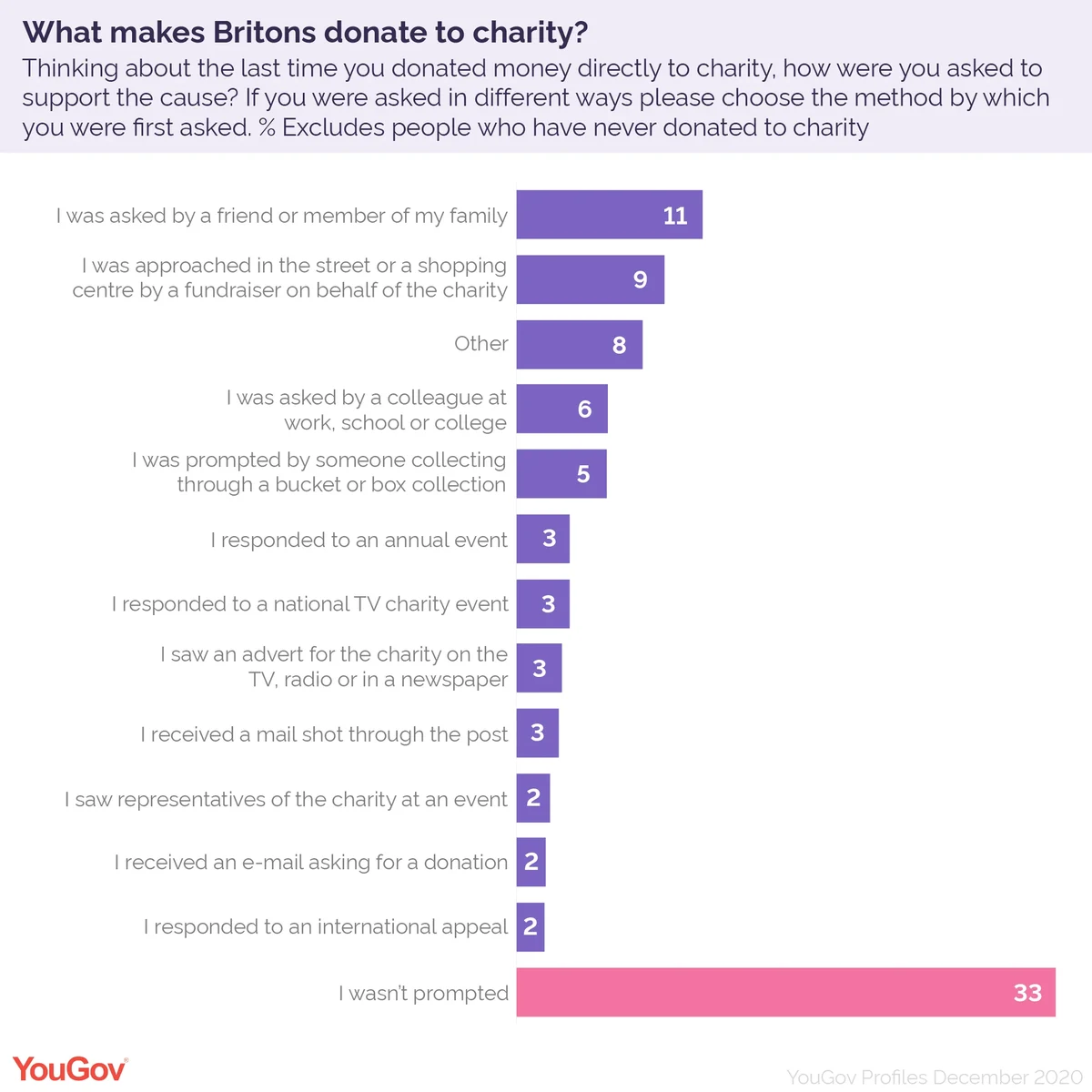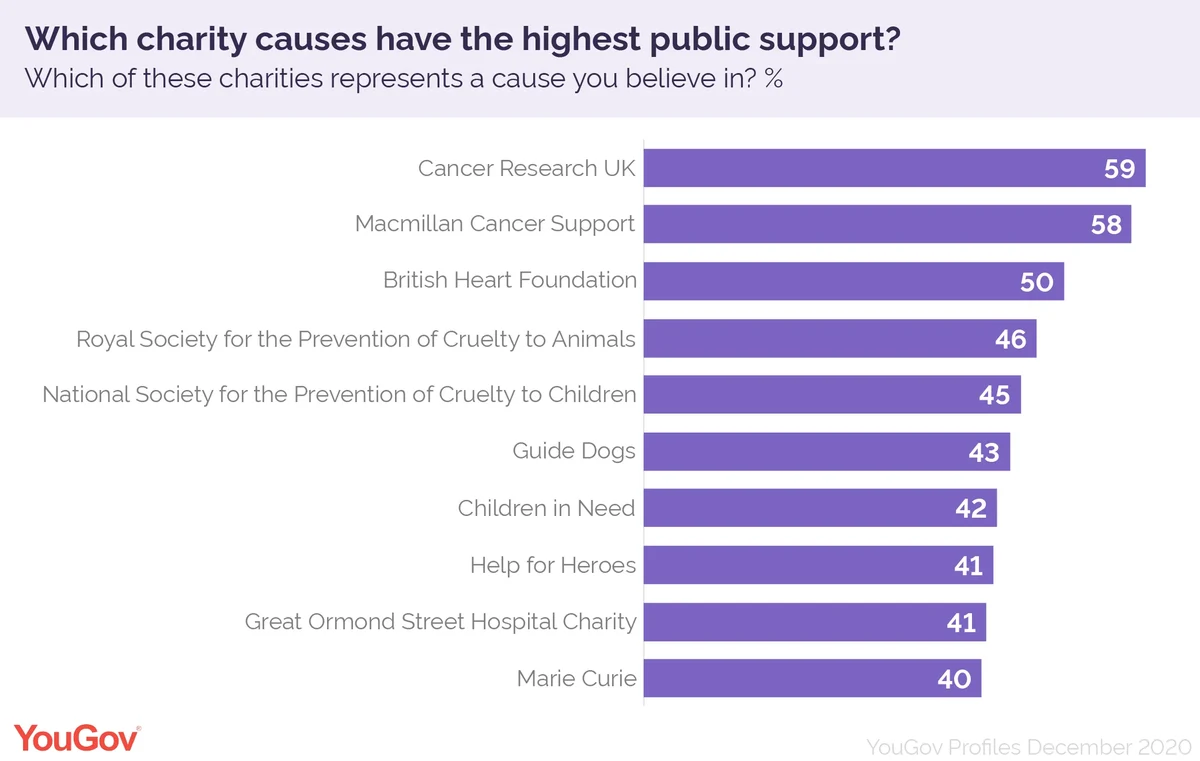
What makes people donate to charity?
Britons are more likely to give to charity if asked in person – by someone such as a friend or a fundraiser – than if prompted by an advert or email
Many charities are struggling to stay afloat as a result of the pandemic, with a new study suggesting that approaching half could run out of cash in the next year.
YouGov Profiles data shows that a third (33%) of Britons who have donated to charity did it without being prompted. However, the research also shows that people respond to many different prompts to give money to good causes. One in nine (11%) say that the last time they donated it was because a friend or family member asked them to. Similarly, another 6% say they were approached by a colleague.

One in eleven (9%) who have given say their last donation was prompted by a fundraiser approaching them in public, while one in twenty (5%) contributed to a bucket or box collection.
Adverts (3%), emails asking for donations (2%) and international appeals (2%) appear to have less impact than being approached in-person.
Younger people, who the research shows are less likely to donate, tend to be more easily swayed by someone they know than by a stranger. One in seven (15%) of those aged 18- to 34 who have donated at some point were prompted by a family member or friend the last time they did so. In contrast, this is true of only 8% of people aged 55 and over.
Generally, Britons are most likely to support causes to do with illness. The top three charities that most people say represent a cause they believe in are Cancer Research UK (59%), Macmillan Cancer Support (58%) and the British Heart Foundation (50%). These are the same three that topped YouGov’s most recent annual charity rankings.
The Royal Society for the Prevention of Cruelty to Animals (46%) and the National Society for the Prevention of Cruelty to Children (45%) also rank highly.
